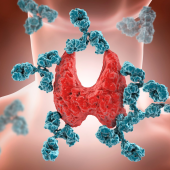More than ever, practitioners are treating patients with depression, anxiety and other mental health conditions in their clinics, and while sometimes all these individuals really need is someone to listen and give them some gentle but objective feedback, increasingly practitioners are seeing patients who are really struggling. And some have been prescribed medications that may not be helping at all. We asked Dr Philip Rouchotas ND to share his best practices in treating mental health drawing from his experience of over 17 years.
Key Takeaways
- Pandemic & Mental Health Mental health issues were considered an epidemic prior to the onset of this pandemic and there are certainly heightened concerns since its onset. That applies across a broad spectrum of concerns we commonly associate with mental health. Individuals whose disorder was pretty well managed before this hit are seeing significantly heightened symptoms.
- Intake & Assessment It's critically important to quantify mental health symptoms when we first see people by conducting an in-depth mental health intake assessment. It is strongly recommended to roll out the Standardized Intake Questionnaires. These include the Hamilton Depression Rating Scale, the Hamilton Anxiety Index, the Beck Depression Rating Scale, the Beck Anxiety index, and the Pittsburgh Sleep Quality Scale.
- Quantify Symptoms At each visit get patients to numerically quantify their symptoms since their last visit. When compared to the baseline at their first visit, you can demonstrate that the new therapies you’ve recommended are actually working. This simple technique empowers and inspires your patient that they are on the road to recovery.
- Interactions Interactions between treatments certainly exist, and it's critically important to be aware of them, as lack of awareness can lead to significant harm. Prescribe nutritional supplements as part of the treatment strategy, including fish oil, vitamin D, B complex or melatonin. These products are clearly established and do not have concerns regarding interactions. Melatonin is safe to combine even with sedatives or sleep aids.
- SSRI'S For very severe depression, SSRIs offer relief. Yet we're continuing to increase the number of prescriptions for mild to moderate depression. And it's quite clear that for mild to moderate depression, SSRIs don't really do much at all. This has been reported in many, many resources, including the Journal of the American Medical Association. So patients experience a very unpleasant list of side effects for minimal to no efficacy. The conversation about side effects is just not happening on the front line.
- Three Herb Combination Our go-to treatment for most mental health issues includes high EPA fish oil, vitamin D plus a three herb combination of St John’s Wort, Valerian and Passion Flower, in a specific dosage. This achieves really profound outcomes for our patients. if you roll that strategy out in your practice, including a really thorough, quantified intake, the outcomes you’ll achieve for patients' mental health will be really powerful. And you're going to help a lot of people who are presently so fed up with SSRIs.
Key Quote
“What I consider the absolute most critical step because it took us years to figure it out, is a combination of three herbs including St. John's Wort, Valerian and Passionflower. The doses are modest. I do not know what the magic is, but once we started rolling out that three herb combination, it really radically changed the types of outcomes we were obtaining for our patients”.
- Dr Philip Rouchotas ND
Surprising Fact
For potential prescription interactions, St. John's Wort draws a lot of red flags. But certain preparations of St. John's Wort are indeed safe to combine with a broad spectrum of prescriptions. That initially shocks a lot of integrative health care providers. Still, if you look at the evidence, St. John's Wort is indeed safe in some preparations.
More than ever, practitioners are treating patients with depression, anxiety and other mental health conditions in their clinics, and while sometimes all these individuals really need is someone to listen and give them some gentle but objective feedback, increasingly practitioners are seeing patients who are really struggling. And some have been prescribed medications that may not be helping at all.
==
The opinions expressed in this Nutramedica program are those of the guests and contributors. They do not necessarily reflect the opinions of Nutritional Fundamentals For Health Inc.
This video is intended for licensed or registered health professionals and students of health professions only. These statements have not been evaluated by the Food and Drug Administration. Information contained in these programs is not intended to diagnose, treat, cure or prevent any disease.



